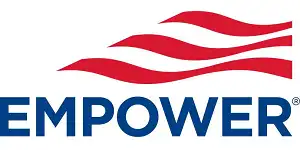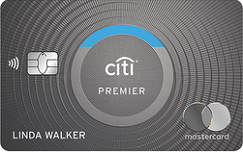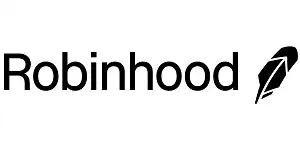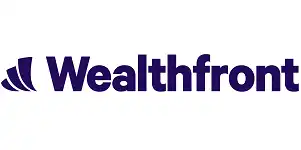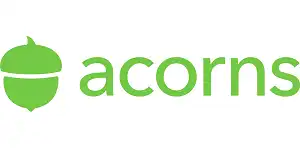We review a lot of products here at Money Under 30 to find the best personal finance products. We do have our favorites—products that stand out for their freshness of thinking, ease of use, and excellent benefits that can be added to your financial toolkit.
Empower is a free financial product we highly recommend for anyone looking to understand where they stand financially. Empower offers a number of powerful tools and calculators for net worth and cash flow, tracking your portfolio, retirement, calculating an emergency fund, and more.
Overview: Best personal finance products
| Best for: | |
|---|---|
| Overall financial product | Empower |
| High-yield savings account | Barclays Online Savings Account |
| Checking account | Chase Total Checking® account |
| Favorite travel card | Citi Premier® Credit Card |
| Everyday credit card | Chase Freedom Flex® |
| Brokerage account | Robinhood |
| Robo-advisor | Wealthfront |
| Savings app | Acorns |
| Insurance marketplace | Policygenius |
Empower
Empower, previously known as Personal Capital, is a 100%-free personal finance app that can track all your financial information, including your bank accounts and spending, all one place.
Empower is a hybrid digital wealth management company and powerful finance app. In addition to paid investment management and advisory services, Empower offers a number of free tools and calculators to help with everything from net worth tracking to saving and retirement planning.
- Easy-to-use app provides financial 'big picture'
- Tools and calculators are completely free to use
- Great security, including two-factor authentication
- Wealth management fees can be be high
- May be subject to upsells
Empower stands out by offering a variety of features, calculators and tools to help you better manage your investments, track your portfolio’s performance, understand your cash flow, and avoid hidden fees. The financial tools it offers are free and easy-to-use, helping you save and budget. We’re big fans of the Retirement Planner, which helps you to see if you’re on track to retire as planned. It’s a tool that can be personalized to reflect how different changes impact your retirement outcome.
If you’re an Empower user who has a balance greater than $100,000, Empower offers a wealth management service (and likely will reach out) with a management fee of 0.89% annually on the first $1 million that scales down for a higher number of investments down towards 0.49%.
» MORE: Sign up for Empower or read our Empower Review
Barclays Online Savings Account
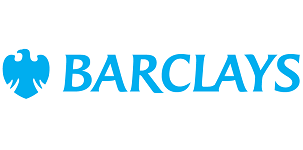
Barclays has a longstanding, stable reputation you can count on along with a competitive 4.00% on its Barclays Online Savings Account.
This may be the best high yield savings account overall, offering a high annual percentage yield (APY) and tons of free features to help you save. There are no monthly maintenance fees, overdraft fees, or transfer fees to deplete your earnings, meaning you end up saving more.
The Barclays Online Savings Account is easy to open with no minimum balance requirements to earn interest and can be funded with as little as $0.01. Online transfers from other US banks are free and easy, as is setting up direct deposit.
» MORE: Open a Barclays Online Savings Account or read our Barclays Online Savings Account Review
Chase Total Checking® account
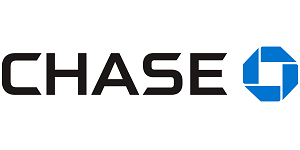
The Chase Total Checking® account is a robust choice for a checking account, especially if you’re a young professional or you prefer in-person banking as Chase has 4,700 branches nationwide.
There is a $12 fee with this account but it can be waived a number of ways:
- Maintain a minimum daily balance of at least $1,500.
- Hold an average daily balance of $5,000 or more in combination of this account and linked qualifying deposits/investments.
- Have at least $500 in qualifying electronic deposits (such as payroll providers or government benefit providers) made into the account.
We highly recommend this checking account for those who can meet one of these waiver options. There’s zero liability protection, Overdraft Assist℠ and you’ll also be able to manage your money, deposit checks and pay bills or people from anywhere, all with the Chase Mobile® app. Plus, you get access to more than 15,000 ATMs.
It’s one of Chase’s most popular accounts for everyday banking needs and one of our favorites as well.
» MORE: Open a Chase Chase Total Checking® account or read our full Chase Bank Review
Citi Premier® Credit Card
There’s a number of top travel rewards credit cards that we’ve broken down to fit what you may be searching for: travel perks, airline miles, hotel points, transferrable rewards and more. The Citi Premier® Credit Card in particular is our favorite for everyday spending, but be sure to check out the list to compare and find what’s best for you.
If you like to go on trips every once in a while but are by no means a travel hacker, then the Citi Premier® Credit Card is for you. It’s a travel rewards card that really rewards you in your everyday life
Citi Premier® Credit Card
Annual Fee
Intro APR, Purchases
Intro APR, Balance Transfers
Regular APR
Credit Needed
$95
N/A
N/A
21.24% - 29.24% (Variable)
The Citi Premier® Credit Card allows you to earn 1 point for every dollar you spend overall, and 3 points for every dollar you spend at supermarkets, gas stations and on air travel. You’ll also get $100 off a $500 hotel stay once a year, and you can transfer your points to participating airline loyalty program.
Traveling abroad? Use your Citi Premier® Credit Card and pay no international transaction fees. Be sure to note down, however, has no has no travel protections.
Chase Freedom Flex®
Chase Freedom Flex® is one of the best credit cards to have in your wallet. Its rotating 5% categories (up to $1,500 max spend per quarter you activate), almost always include such everyday categories as gas, groceries, and utility services, make it easy to earn significant rewards without going into unnecessary debt. It also makes redeeming your awards a breeze—whether in travel, gift cards, or directly into a savings account.
Chase Freedom Flex® has no annual fee and even more cash back categories including 5% cash back on travel purchased through Chase Travel, 3% on dining and drug stores, and 1% cash back on all other purchases. And the cash back rewards never expire.
If you don’t want to worry about rotating categories, you can also consider the Chase Freedom Unlimited® instead. It’ll still provide you with some stellar 3%-5% cash back categories, and a larger 1.5% cash back on all other purchases.
Robinhood
With zero-commission Robinhood, you can sign up with ease and begin trading stocks, crypto, ETFs, and even IPOs some companies starting with as little as $1.
Robinhood is a popular stock trading and investing app that offers zero-commission trades on thousands of investments, including stocks, starting with as little as $1.
With beginner-friendly features and easy-to-read charts, Robinhood is great for new investors and there's advanced features even more seasoned investors can appreciate.
- Commission-free trading
- Easy to use, well-displayed dashboard
- No obligation or minimum account balance
- No bonds or mutual funds
Robinhood has become one of the most popular options in recent years because it’s truly a simplified trading experience that’s mobile-friendly with an easy sign-up. There has been some trading controversy that pushed forward a whole list of Robinhood alternatives, but over time Robinhood still remains one of the options for beginners and casual traders.
One of the best things about Robinhood for new investors is the ability to trade stocks and ETFs in pieces of shares, in addition to trading in whole share increments. These can be placed in share amounts and dollar amounts, so if you just want to invest $10 in Apple or buy a tenth of a share, you can do either one.
Margin traders, market researchers who want an easy tool to gather knowledge, and especially new investors can appreciate Robinhood.
» MORE: Open a Robinhood account or read our full Robinhood Review
Wealthfront
There’s a whole list of the best robo-advisors to consider, and honestly none of them are a bad choice. But we’re particularly fond of our top pick that makes passive investing easy, Wealthfront.
Wealthfront is designed for young professionals, anyone from passive investors who want expert digital guidance, to people who want to be smarter with money.
With low fees and multiple tax perks, automated investment management tuned in to your individual risk level make Wealthfront worth a look.
- Passive investing with automated management
- Tax-loss harvesting
- Ability to customize portfolios
- No fractional shares of ETFs in automated accounts
- No human advisors
Wealthfront is a robo-advisor that investors can start using for as little as $500 that looks to maximize long-term gains. The fees are relatively low (0.25% annually) and there’s a number of impressive features in the Wealthfront ecosystem, including Path investment management for financial planning, a cash account that earns an impressive APY, and a number of planning tools.
New investors can look at Wealthfront and see some great reasons to sign up, but Wealthfront isn’t solely for those starting out. Experienced investors and those with higher balances will be pleased by what else Wealthfront can offer as they dive more into it. There’s US Direct Indexing, for example, which is stock-level tax-loss harvesting for those with a balance of $100,000. The versatility across the board for multiple types of users makes it our favorite robo-advisor.
» Sign up for Wealthfront or read our full Wealthfront Review
Acorns
Acorns is a simple multifunctional app for savings and investing with useful features that make saving automatic and most pleasantly barely noticeable. It’s great for those who need help sticking to a savings plan or are new to certain financial areas, like investing.
Acorns makes it easy to start investing (even if you know nothing) and provides helpful tools to help you save more automatically. In under 3 minutes, start investing spare change, saving for retirement, earning more, spending smarter, and more.
- Effortless automated investing
- Easy-to-use savings features
- Low-cost solution to manage money
- Flat monthly fee more expensive for smaller accounts
- Can use more robo-advisor features
The cost for Acorns ranges between $3 to $9 a month, so it’s not free, but you’re likely find the lowest tier satisfactory for your basic savings needs. The first savings feature Acorns offers is “Round-Ups.” This takes spare change from your purchases rounded up to the nearest dollar and invests it once the amount hits $5. There’s also Smart Deposit, which can take a piece of your paycheck automatically to be invested.
It backs this all up with a well-designed mobile app and no hidden fees as the monthly fee is all-inclusive, so you can focus on saving.
» MORE: Sign up for Acorns or read our full Acorns Review
Policygenius
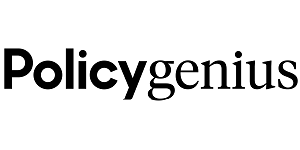
Policygenius is one of our favorite places to shop for insurance online for its ease and transparency. It’s broker and marketplace that offers, among a number of other insurance, renters insurance.
Policygenius partners with a large number of reputable, big-name lenders to find the right insurance for your situation. You only have to fill out one application. After your application is submitted, you’ll get many quotes from different insurance companies. And, when you’re ready to apply through a direct lender, Policygenius is there to help walk you through the process.
Like we mentioned, Policygenius can also help you with finding a number of insurances, including disability insurance, term and whole life insurance, and renters insurance. With an engaging and attractive interface and the no-pressure approach of an independent broker, Policygenius makes insurance as painless as possible and notably easier.
» MORE: Compare quotes with Policygenius or check out our Policygenius Review
How we picked our favorite personal finance products
We looked at a few factors: relevant fees, ease of use with a focus on new users, available features, and on the basis if there would be value added if you were to download or sign up for these today as one of our readers.
We have over 500 financial service reviews published since 2006, so during that time we’ve been able to pinpoint some of our favorites to narrow down the field.
Why should you use a personal finance product?
Managing your money and your financial profile if the strong foundational basis of a better future. There’s a number of reasons specific to your personal situation currently or in the future that means it may make sense to use a personal finance product. Here’s just a few:
You want to save
A savings account is a great place to build and keep an emergency fund in the event of an unexpected event. You can also a saving account for short and long-term goals, like an upcoming wedding, with money you don’t want to invest during any given time.
Then there’s also money-saving apps, like Acorns, for people who struggle to get into the habit of saving.
You’re ready to start investing
There’s a standard brokerage account, accounts for retirement, accounts for your kids and so much more to soak in when learning how to invest. The takeaway as you learn more is that one of the most important things you can do it to start investing.
You’re not properly budgeting
Using some of the solid methods for budgeting with or without the assistance of a budgeting or wealth management tool actually means you’ll spend less time worrying about money in the long run. You figure out how much you should be saving, what you should possible cut out and ultimately have less anxiety about your finances.
You need to understand what you’re earning and what you’re spending.
The best personal finance products are ones that suit your needs
While these are our personal favorites, that doesn’t mean they are the best for everyone. (How could they be?)
For instance, if you’re a major traveler and relatively big spender, then the Citi Premier® Card which has no foreign transaction fee and has an annual fee of $95 that may be worth it for you when it wouldn’t be for a more casual or infrequent traveler.
Personal finance isn’t cookie-cutter.
With that in mind, we’ve including some of our best-of lists below that we’ve researched and compiled for your use to compare what’s best for you:
- Our picks for best credit cards
- Best investment accounts
- Best savings accounts
- Best checking accounts
- Best budgeting apps
- Best money-saving apps
- Best free credit reports and scores
Summary: Best personal finance products
It’s easy to get overwhelmed by the sheer volume of credit cards, personal finance apps, bank accounts, and investment services out there (and the often-conflicting advice that goes with them).
Our favorite personal finance products are a great start for anyone looking to get ahead on their finances with some of the top options.
